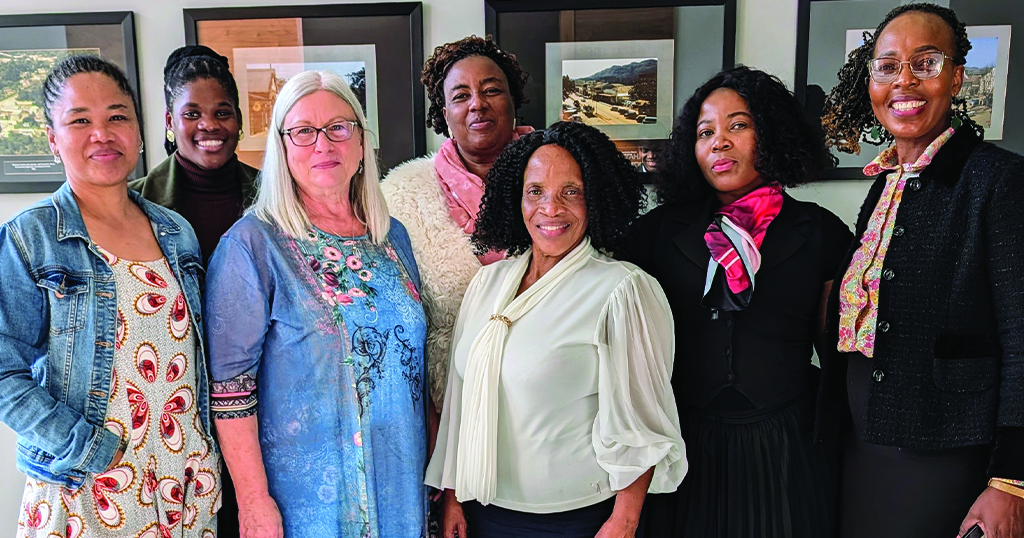In 2014, Dr. Bethany Murray began a decade-long relationship with sub-Saharan Africa’s Kingdom of Eswatini (formerly Swaziland) by responding to an email request for nursing faculty to accompany students on an Indiana University study-abroad program. This summer Murray is back in Eswatini helping to develop an evaluation plan for the country’s newly adopted system for licensing nurses.
Murray, a clinical assistant professor at the IU School of Nursing, is the project’s principal investigator from the United States and is partnering with key stakeholders in nursing education and hospital-based care. The three-phase study is supported in part by a grant from Sigma Theta Tau International Honor Society of Nursing.
After a 10-year development process, the Eswatini Nursing Council implemented the first entry to practice licensing requirements for registered nurses in Eswatini in 2020. To become a registered nurse, students must graduate from one of the four nursing colleges in the nation and then sit for a written exam. Students are also required to submit a completed nursing board logbook of clinical skills that have been verified by a preceptor and a faculty member.
The step toward licensing nurses in Eswatini is a major one.
“The act of licensing nurses speaks to nursing identity,” Murray said. “What does it mean to be a licensed nurse as opposed to graduating and moving into a nursing position? What does that license symbolize?”
Murray is especially equipped to help the Eswatini Nursing Council gather and review almost four years of data.
“I see myself as a catalyst,” she said. “Oftentimes when there is an opportunity to visit with someone who has an outside perspective, it can function as a great reason to come together to think deeply about an issue.”
Murray’s PhD dissertation focused on social and cultural factors affecting women’s health in Swaziland. Her research plus her experience with clinical education, interest in nursing identity, and skills in facilitating important conversations prepared her well.
“There is so much we have to learn from how other people function and work,” she said. “We, in the United States, can’t really imagine what it’s like to practice nursing in Eswatini, and the Swazi cannot imagine how we practice nursing in the United States. By putting the two experiences together, both nations can imagine the unimaginable.”
The final phase of the study will be complete in December, and Murray’s hope is that the Eswatini Nursing Council will have a plan to distribute the findings along with recommendations for improvements.


